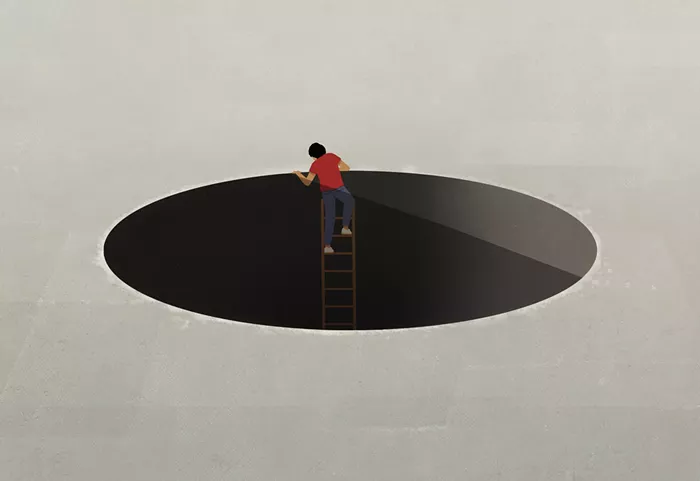How do we deal with all of this? The president is threatening to take over New York City because voters want to elect a candidate who simply promises to make a very expensive city affordable. Federal agents storm a city park near downtown Los Angeles as if they are in a warzone (they also brought along horses, as if they were hunting down runaway slaves). In Seattle, masked men claiming to work for ICE abducted a woman, known as “the food lady,” from a parking lot in White Center. And this is just the tip of the iceberg.
We can no longer end a day in the US without Trump’s administration breaking or strangling laws that protect the rights of all individuals or the institutions of our democracy. When will this end? How long can this go on? Because questions of this kind are on the minds of most Americans, I propose that we turn to sadness itself for support during a period that, for now, appears to be endlessly tenebrious.
Before proceeding, I must make this key distinction: Sadness is not the same as depression. Depression, as far as I understand it, is total. It is a feeling that sees no hope wherever it looks, and it results in paralysis of the soul and body. Former Seattleite (and one of the leading cultural theorists of our times) Steven Shaviro once described Lars Von Trier’s 2011 film Melancholia as cinema’s most accurate representation of the state of depression. The film is about Earth’s final days. Another planet, Melancholia, is rushing directly toward it. When the worlds collide, life, as we know it, will all come to an end.
“[Lars Von Trier’s Melancholia] really conveys a sense of what depression feels like,” Shaviro writes. “It traces the contours of depression from the inside, better than any other film I have ever seen”
Depression is defined by the condition of despair. And what is despair? Ethics, a work by the 17th century philosopher Baruch Spinoza, describes it in this way: “Despair is pain arising from the idea of something past or future, wherefrom all cause of doubt has been removed.” Meaning, hope (what he calls “doubt”) is removed from what I call “anticipation.” To be depressed in these dismal times (“A farmworker has died after falling off a roof during an Immigration and Customs Enforcement raid in California”) is truly dangerous, both spiritually and physically, because we can only anticipate the worst.
Sadness, on the other hand, never loses sight of hope. It’s not naive. But sadness, a mode I’m very familiar with, knows very well that hope is at once real but also frail. Indeed, it knows this in the same way it knows joy is frail. Sadness never says, when experiencing a good time, “This too shall pass”—a statement that contains no wisdom and too much confidence, something that’s anathema to the truly sad. (Spinoza writes: “Confidence is pleasure arising from the idea of something past or future, wherefrom all cause of doubt has been removed.” Sadness is made sadder by confidence.)
The pleasure that’s specific to the sad is the recognition of the delicacy of all things, which is why we see our leading American poet in the jazz pianist Bill Evans. When you are experiencing a broken heart, for example, there is no better place to turn than to the music of Evans. Listen to how plays (so delicately, so lovingly); watch how he droops over the keys of the piano (so present, so patient). He is always there for you, there to console you, there to play in such a way that you feel you are not at the end of days but actually on a ship surrounded by a sea that appears to be bottomless and endless. But the ship, built by activists and artists, continues to move, to chug along, and the sea continues to be the dismal sea. Sadness is there on the bow of the ship, searching for the sight of land. It knows it’s out there. It believes someday it will appear, and this belief is not unwarranted.
Hope, as I said, is not pointless. What the sad person believes is that, day after day, night after night, ICE shock (“White House border czar suggests ICE can detain people based on ‘physical appearance’”) after ICE shock (“Man ‘violently’ arrested by ICE in Denver courthouse bathroom as young child watched, witness says”), all we see is the sea and not that spot of land that finally breaks the monotony of the water and shows the end is finally near.




